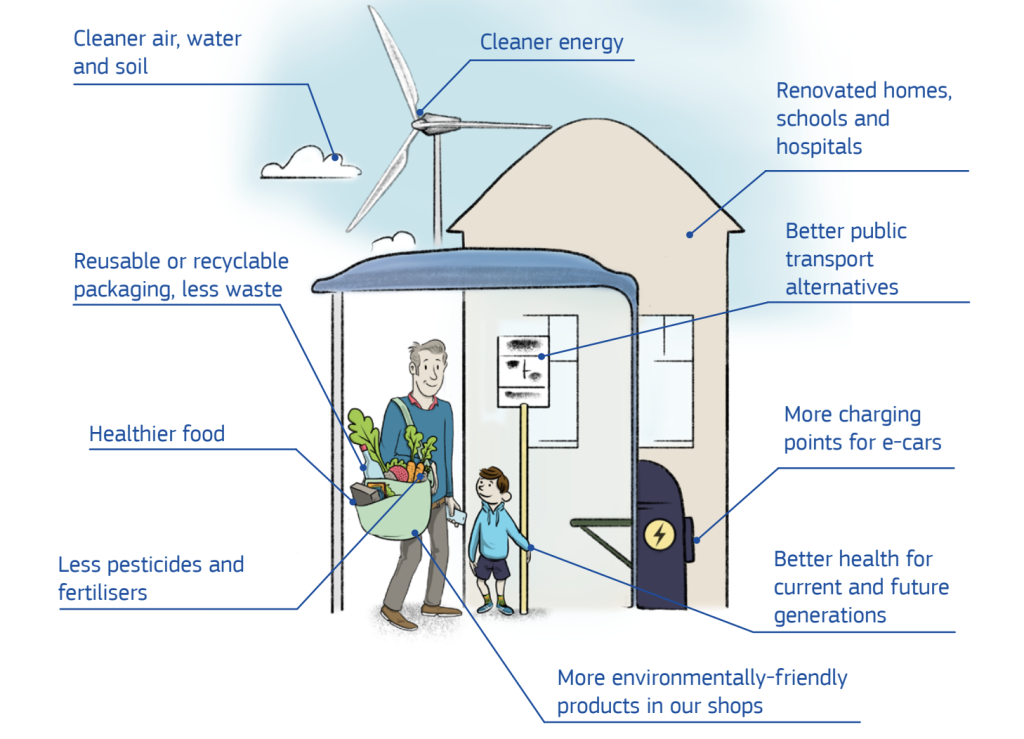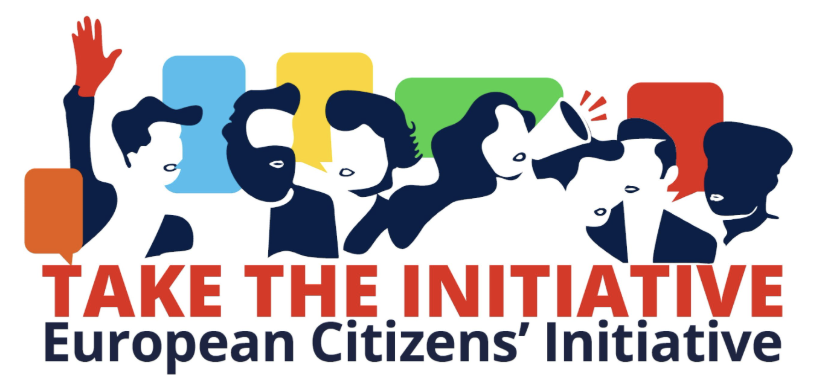Green ambitions
As climate pressures intensify, the European Union (EU) has taken a leading role on the global stage, with the European Green Deal setting the ambitious goal of climate neutrality by 2050. But the way environmental policy is made in the EU remains complex. Because it is a shared competence between the Union and its Member States, both levels can legislate, creating space for flexibility, but also for fragmentation, especially when dealing with cross-border issues like pollution, biodiversity loss, or climate resilience. In this context, democratic participation is a practical necessity. Environmental policy shapes everyday life and demands coordinated action across sectors and borders. Without real space for public involvement, there is a risk that decisions feel distant, overly technical, and disconnected from the concerns of citizens.

The European Citizens’ Initiative (ECI)
Aim to address this by giving EU citizens a formal tool to influence policymaking. Introduced by the Treaty of Lisbon and launched in 2012, the ECI allows any group of citizens to invite the European Commission to propose legislation on matters where the EU has competence. To be considered, an initiative must collect at least one million signatures within 12 months, from citizens of at least seven different EU Member States, meeting country-specific minimum thresholds. In practice, the process has become more accessible in recent years. Organisers can choose to collect signatures either on paper or through a secure online system. The European Commission provides a free Online Collection System (OCS) that meets EU data protection standards. Since 2020, digital signatures using national electronic ID systems (eIDs) have also been permitted in many Member States, facilitating faster and more secure participation. The signature verification process is managed by national authorities, which ensures that only valid statements are counted. The Commission’s role is central but also nuanced. If an initiative reaches the threshold, the Commission must carefully examine it and respond publicly within six months. This includes meeting with the organisers and holding a public hearing in the European Parliament. However, the Commission is not legally obliged to propose new legislation, even for successful initiatives. Its decision must be reasoned and transparent, explaining whether or not it will act, and why. This reflects the Commission’s unique institutional role as the sole initiator of legislation at EU level, balancing citizen input with broader legal and policy considerations. While this may seem like a limitation, it also prevents the legislative agenda from becoming reactive or fragmented. Still, it places a burden on the Commission to justify its choices and maintain public trust, especially when initiatives address timely and well-supported policy concerns.

What makes this framework particularly relevant in the environmental field?
In the environmental field, where policy tends to be complex, technical, and transnational. The ECI offers a rare and valuable opportunity for bottom-up engagement in what often feels like a top-down policy space. It enables citizens to elevate issues that might otherwise be overlooked or under-prioritised in institutional debates. A recent example is the 2023 initiative “Creation of a European Environment Authority.” It proposed establishing a centralized EU body to ensure uniform enforcement of environmental laws across Member States. The reasoning was straightforward: while EU environmental law is often ambitious on paper, inconsistent implementation undermines its effectiveness and public trust. The proposed Authority aimed to close these gaps, improve data collection, and enforce compliance more evenly. Despite its policy relevance, the initiative did not manage to gather one million validated signatures by the April 2025 deadline. Like many before it, it was marked as an “unsuccessful collection,” prompting reflection on what makes or breaks a citizens’; initiative. Crucially, the challenge was not a lack of vision, but rather the high demands of the process. Organisers must manage a legally sound and multilingual campaign, navigate national verification systems, and mobilise broad cross-border support, all often without institutional backing or significant funding. Still, some initiatives have overcome these difficulties, especially those supported by experienced NGOs or pan-European networks. The success of campaigns like “End the Cage Age” or “Right2Water” demonstrates that the ECI can be impactful, especially when combined with sustained advocacy and media attention. Even when the Commission declines to propose legislation, successful ECIs often influence policy debates, shape public awareness, and feed into broader legislative agendas.
What the ECI represents
Is not a silver bullet but a democratic avenue, one that needs continual strengthening. The Commission has taken steps to simplify the process and raise awareness, but more could be done to provide guidance, funding, and institutional support to citizen groups. Strengthening partnerships with civil society organisations and local actors could also help democratise access to the tool. Europe’s environmental challenges, whether it is climate change, pollution, or ecosystem degradation, demand responses that are fast, coordinated, and grounded in democratic legitimacy. That kind of legitimacy cannot be built from the top down alone. If the EU wants the Green Deal to succeed, it must ensure citizens are not just informed observers, but active participants in shaping the path forward. In a policy area defined by shared responsibility, the European Citizens’ Initiative should act not only as a formal petition tool but as a genuine bridge, linking institutions with the ideas, concerns, and energy coming from society.
Reference list:
https://caneurope.org/the-prospects-for-meaningful-citizen-engagement-in-european-policy-making-learnings-from-the-real-deal-project/
https://www.thegoodlobby.eu/are-european-citizens-initiatives-worth-the-effort/
https://citizens-initiative.europa.eu/initiatives/details/2023/000011_en
https://www.vodafone-institut.de/wp-content/uploads/2024/11/empowering-citizens-dp-final.pdf
https://eur-lex.europa.eu/legal-content/EN/TXT/HTML/?uri=CELEX:32019R0788






